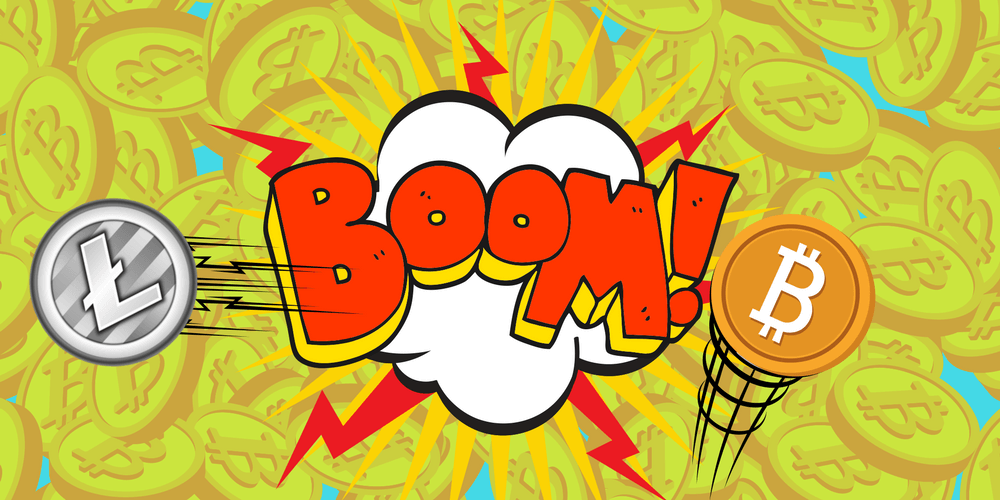
Bill Barhydt is the CEO of Abra, which is a “crypto bank” built on a system of Bitcoin and Litecoin smart contracts that allows users to hold pretty much any fiat currency as digital cash on their smartphones.
In a recent, wide-ranging interview with angel investor Jason Calacanis on This Week in Startups, Barhydt was asked for his opinion on 2017’s cryptoasset frenzy. In his response, the Abra CEO touched on the importance of government approval of bitcoin in Japan and the hysteria in the initial coin offering (ICO) market.
FOMO Rooted in Japan
In Barhydt’s view, the hysteria around bitcoin and other cryptoassets in 2017 was kicked off by the Japanese government’s approval of this new technology.
“My take is the price went up because the Japanese government basically gave a blessing to the institutional investors that says, ‘We support this,’” said Barhydt. “In Japan culturally, that has a different meaning than in the U.S. That was like a blessing that says, ‘Go forth and prosper.’ It’s almost like a blessing of ‘please do this’ — [in] the way that it was accepted by the market.”
This is contrary to how people tend to operate in the United States, for example, where the mantra is to try something first and then ask for forgiveness later if it turns out to be illegal.
According to Barhydt, the movement into bitcoin by institutional investors in Japan led to a feeling of FOMO among retail investors around the world as the price began to climb. These retail investors then entered the market through services like Coinbase, which had the most popular app on the App Store at one point in late 2017.
“There is, by and large, no institutional money in the west in crypto . . . When they start, look out,” added Barhydt.
The Hodl Gang
Barhydt also explained that the price is effectively controlled by the number of buyers because the numbers of sellers usually remains relatively stagnant.
“There are actually a large number of holders who are not interested in selling,” said Barhydt. “If there’s not a lot of sellers, that means the volume is driven by the people that are buying because the number of sellers is relatively fixed, which is an interesting phenomenon.”
According to Barhydt, these individuals are not interested in selling whether the price is at $1,000 or $50,000
These long-term holders (or hodlers) effectively provide a floor for the bitcoin price (see a full explanation of this point here). Early bitcoin investor Trace Mayer has referred to these holders as the “hodlers of last resort.”
To Barhydt’s point, the bitcoin price has come back down to reality now that the euphoria has subsided.
The ICO Craze
Barhydt also touched on the ICO craze during his interview on This Week in Startups, and he divided these types of tokens into two specific categories: ones that are not much different from traditional securities and ones that are so-called “utility tokens.”
“Most of the companies over the past eighteen months that have been creating these ICOs have been trying to pitch themselves as, what I would call, utility tokens, which means they’re not subject to normal SEC registration or the normal rules that your investments would have to go through if they listed at AngelList for example,” said Barhydt.
In Barhydt’s view, a lot of these proposed utility tokens are simply securities dressed up in a new technology’s clothes. He added that lawyers at some firms effectively enabled entrepreneurs to take this dubious route with their token sales — a point that SEC Chairman Jay Clayton has made as well.
Barhydt went on to point out that ICOs effectively replace the “friends and family” round of traditional funding, which is usually based on nothing more than a whitepaper.
“You really have to trust that the person that you’re [giving the money to] is going to stick around first and foremost,” said Barhydt. “Do you think that the average ICO investor is playing the game the way an angel investor does? The answer is: of course not. The chances of them making money, statistically speaking, is zero. It’s impossible. But people aren’t thinking about that because these tokens are instantly liquid.”
The immediate liquidity of these tokens means those participating in the original sale are often more interested in dumping the coin on someone else via an exchange rather than investing in the long-term promise of the project in question.
Having said all this, Barhydt did name Bancor, Orchid, and EOS as three projects that he’s found to be legitimate. However, he does not invest in ICOs as he thinks it would conflict with his work at Abra.

